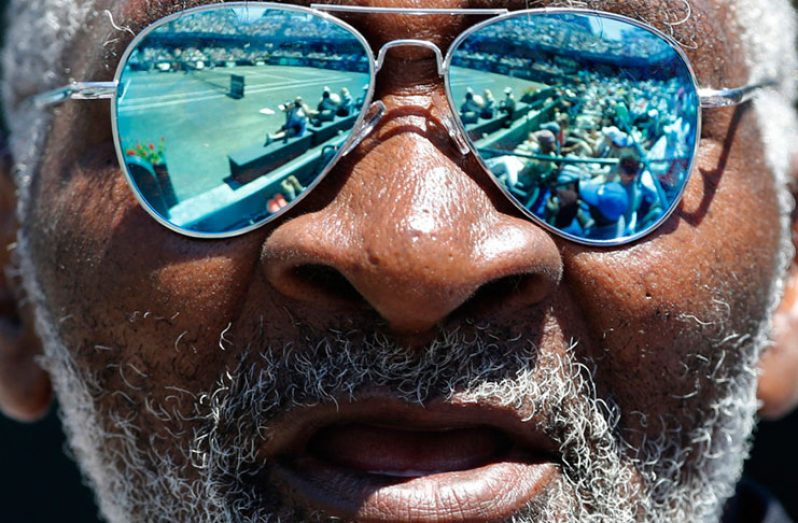The sisters are the most accomplished sports siblings in history thanks in large part to the courage and fire of their father
By LZ Granderson
SERENA WILLIAMS was gathering her things to walk off the court after her 6-2, 6-3 victory over Johanna Konta on January 25 when Rennae Stubbs, who conducted the post-match interview, said something to the crowd that just didn’t sound right.
“Ladies and gentlemen, the world’s No. 2, Serena Williams.”
It was odd hearing the greatest to ever do it be referred to as second best. And one could infer from the manner in which Williams’ once toothy smile slowly evaporated that she wasn’t particularly fond of the characterization either. Nonetheless, since Angelique Kerber won the U.S. Open in September 2016 that had been the reality: Williams was not No. 1. The index finger she normally raised high in the air after a victory, a tad hollow.
It was in that moment that I knew she was going to win the Australian Open. Some people are masters at hiding how they really feel. Williams — like former first lady Michelle Obama — never struck me as someone who bothered playing that game.
Yet as the accolades continue to pour in celebrating her achievements as well as those of her ageless sister Venus Williams, there is one name that should not be forgotten.
Richard Williams never flinched in telling a predominantly white tennis world exactly what his two black daughters from Compton, California, were going to do. After Venus made the U.S.

Open Final in her very first appearance, Richard confidently told the world that Serena was better. And when his daughters were slighted in the media, in the crowds or by other players, he had no problem going John Q on their behalf. Yeah, he talked a lot of smack early on — like holding a sign that read “I told you so” or telling World No. 2 Arantxa Sanchez Vicario “I hope you win,” before facing a then 14-year old Venus — but time has shown he was able to back it up (though Venus did lose that match). A shock to most, but when you overcome life as a sharecropper in the segregated South — with the constant threat of the Ku Klux Klan shadowing your every move — you become accustomed to doing the impossible.
“I wanted to go to Chicago so bad,” Richard said of his early days during an interview to promote his 2014 memoir, Life in Black and White: The Way I See It. “I was so tired of being called names, jumped on, and having to run so fast, sometimes getting killed almost and house set on fire … I said, if I go to Chicago, it would be different.
“My mom said, ‘Son, I don’t care where you go, it’s gonna be the same for you. You have to learn to expect things from yourself. Not what people are going to do to you.’ She taught me that I had to be rough, I had to be tough and I had to be strong.”
Richard’s mother also taught him that family was the world’s greatest institution. The love displayed between Venus and Serena after their matches is not merely the behavior of two sisters, but the physical manifestation of lessons passed from ancestors to ancestors in order to survive. If you appreciate how much the two care for one another, then you must have room to appreciate the man, the father who taught them the importance of doing so — regardless of what others expected them to do.
Age and reports of health issues have kept him out of the player box for a number of years now, but know this: Each time Serena twirls around holding up that index finger, Richard is there. When Venus talks about overcoming the debilitating Sjögren’s syndrome, she is drawing part of her strength from a man who grew up picking cotton in the unforgiving Louisiana heat.
Yeah, when he was on the tour he was a bit odd.
But 62 combined major titles, eight combined gold medals, and 321 combined weeks at No. 1 is not exactly normal.
So when the International Tennis Hall of Fame finally opens its doors to the Williams family, my hope is that they make room for three. No coach in the past 20 years has had as big of an impact on the game than Richard. And when you factor in him teaching himself how to play, buying used tennis balls for 10 cents, putting rackets on layaway, and regularly getting into fistfights with gang members in order to use the tennis courts, leaving him out in the hall would only serve to show how little voters truly understand the best sports story in history.




.png)









